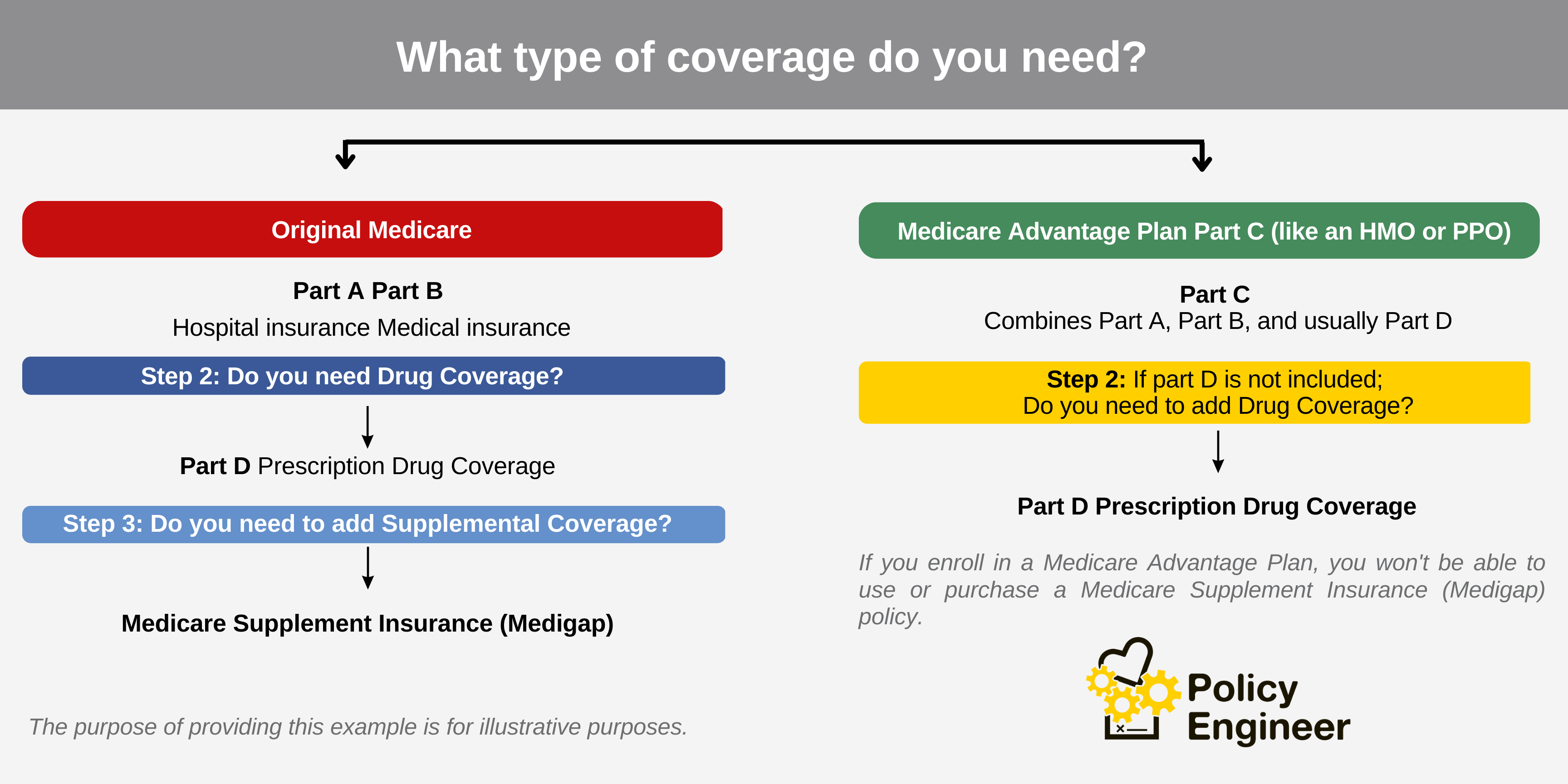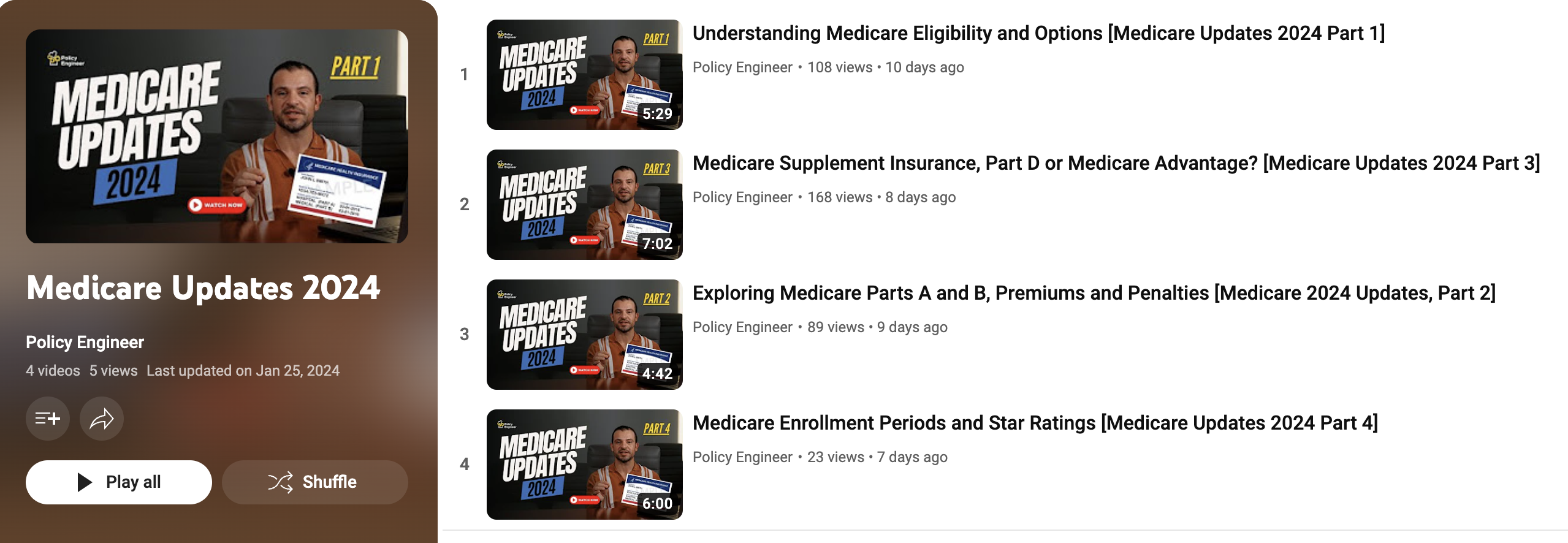Potential Changes to Medicare Part B and D for 2024:
As we enter a new year, it’s essential to stay informed about changes that might affect your healthcare coverage. In 2024, there are some notable updates to Medicare Part B and D that you should be aware of. These changes could impact your costs, coverage, and overall healthcare experience. Let’s delve into the key modifications for Medicare Part B and D in 2024.
Let’s take a closer look at the potential Medicare Part B and D changes in the coming year.
Medicare Part B Expectations
-
Standard Premium Adjustment: The standard monthly premium for Medicare Part B may experience a slight adjustment in 2024. The exact premium amount will be announced by the Centers for Medicare & Medicaid Services (CMS) in the months leading up to the new year. It’s crucial to keep an eye on these updates to plan your budget accordingly.
-
Expected Premium Increase: The standard monthly Part B premium for most Medicare beneficiaries is expected to increase by $10 to $174.80 in 2024. This is based on the latest estimates from CMS. It’s important to note this change and its potential impact on your monthly expenses.
-
Income-Related Monthly Adjustment Amount (IRMAA): Individuals with higher incomes may experience an IRMAA surcharge on their Part B premiums. The income thresholds determining these surcharges can change each year, affecting the amount you pay. Be sure to review the new income brackets to understand any potential changes in your premium costs.
-
Deductibles and Coinsurance: The Part B deductible, which covers your out-of-pocket expenses before Medicare coverage kicks in, could experience adjustments. Similarly, the coinsurance you’re responsible for after reaching the deductible might also change. Familiarize yourself with these amounts to anticipate your healthcare costs accurately. The Part B deductible is expected to increase to $233 in 2024.
Medicare Part D Expectations
-
Standard Benefit Design Changes: Medicare Part D prescription drug plans have a standard benefit design that outlines how costs are shared between you and the plan. In 2024, there might be modifications to this design, such as changes in copayments, coinsurance percentages, and coverage gaps. Review your plan’s upcoming 2024 Summary of Benefits to understand how your drug costs might be affected.
-
Average Monthly Premium Decrease: The average monthly premium for Medicare Part D prescription drug coverage is expected to fall slightly in 2024, to $55.50, a 99-cent drop from the 2023 average of $56.49. This decrease is due to factors including the premium stabilization provision from the American Rescue Plan Act of 2021.
-
Cap on Out-of-Pocket Drug Spending: In 2025, the out-of-pocket cost for brand-name drugs will be capped at $2,000. This is excellent news for beneficiaries, as it means you won’t have to pay more than this amount for your brand-name prescription drugs in a year.
-
Spreading Out the Cost of Prescription Drugs: Starting in 2025, Medicare beneficiaries will be able to spread out the cost of their prescription drugs over the year. This change is beneficial, as it prevents the need to pay the full cost upfront. If you only take brand-name drugs, the cap on your annual spending is set at $2,000.
-
Formulary Changes: Part D plans often update their formularies, the list of covered prescription drugs. Review these changes to ensure your necessary medications are still covered and explore alternatives if needed.
-
Premiums and Deductibles: Part D plans have varying premiums and deductibles that can change annually. These changes can impact your overall prescription drug costs. Compare different Part D plans during the Open Enrollment period to find the one that aligns with your medication needs and budget.
-
Catastrophic Phase Changes: In the catastrophic phase, Part D plans will pay 20% of total drug costs instead of 15%. The 5% coinsurance requirement for Part D enrollees will also be eliminated. This means that Medicare beneficiaries will pay less in the catastrophic phase.
Other Potential Medicare Changes
-
Low-Income Subsidy (LIS) Expansion: The eligibility for the full low-income subsidy (LIS) will be expanded to individuals with incomes up to 150% of the federal poverty level. This means that more people will be eligible for financial assistance to help pay for their Part D premiums and out-of-pocket costs.
-
Insulin Cost: The out-of-pocket cost of insulin products will remain capped at $35 per month in all Part D plans.
-
Vaccine Coverage: Adult vaccines covered under Part D, such as the shingles vaccine, will continue to be covered with no cost sharing.
Staying informed about changes to Medicare Part B and D in 2024 is crucial for effectively managing your healthcare costs and coverage. As part of our commitment to providing ongoing professional service, Policy Engineer, is dedicated to helping you navigate these changes. Our licensed Policy Engineers are available to assist you in understanding how these updates might affect your insurance needs. Remember that even with these changes, our focus remains on giving you access to the best insurance rates and providing you with the support you need to make informed healthcare decisions.
Medicare Advantage Plan Changes
-
Projected Changes: The number of Medicare Advantage plans available is projected to decrease in 2024. Premiums for Medicare Advantage plans are projected to increase, while benefits are expected to remain largely the same. Some plans may offer new or enhanced benefits to attract enrollees.
-
Growth of MA Program: The Medicare Advantage program will continue to grow, offering private health insurance plans that provide Medicare benefits. Enrollment in MA plans is expected to increase in 2024.
-
Specialized MA Plans: Medicare Advantage Special Needs Plans provide specialized care and support for people with certain chronic conditions, such as diabetes or heart disease.
-
Cost-Sharing Reduction Plans: Cost-sharing reduction plans are available to people with incomes below a certain level, offering lower out-of-pocket costs for prescription drugs and other services.
-
Medicare Advantage Direct Contracting Plans: These new plans will allow Medicare beneficiaries to receive their care from a team of doctors and other healthcare providers who are contracted with the plan. The plans will be paid a fixed amount per enrollee, and they will be responsible for providing all of the enrollee’s care, including prescription drugs.
-
Medicare Advantage Special Needs Plans: These plans are designed for people with certain chronic conditions, such as diabetes or heart disease. The plans offer specialized care and support to help these beneficiaries manage their conditions.
Last Updated: January 11th, 2025





